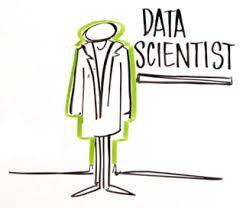 This post is contributed by Frank Lo, an experienced data science professional and friend of Burtch Works. Frank is currently the Head of Data Science at Wayfair, as well as the founder of DataJobs.com.
This post is contributed by Frank Lo, an experienced data science professional and friend of Burtch Works. Frank is currently the Head of Data Science at Wayfair, as well as the founder of DataJobs.com.
 This post is contributed by Frank Lo, an experienced data science professional and friend of Burtch Works. Frank is currently the Head of Data Science at Wayfair, as well as the founder of DataJobs.com.
This post is contributed by Frank Lo, an experienced data science professional and friend of Burtch Works. Frank is currently the Head of Data Science at Wayfair, as well as the founder of DataJobs.com.
There is so much hoopla around the need to hire data scientists — but amid all the frenzy, I notice a major disjoint between what companies think they need and what they actually need to leverage data science for business value. I come from the background of leading a data science team; on top of cultivating the team and diving into the nitty-gritty of data, I spend a lot of time recruiting, trying to find new rock-star talent. I’d like to share a few things I’ve learned along the way around what to look for.
Look for quant experts with business hustle. First, let’s think about what is data science. It is not only a combination of technical and quantitative disciplines, but also the acumen to leverage STEM skills to transform business. Too often, we focus too much on pure engineering/math ability, kicking business smarts to the wayside. On the contrary, I think business acumen is one of the most important traits of effective data scientists — so much so that I filter out strong tech/math candidates if they have trouble thinking through the business applications of their quantitative work. Ultimately data scientists create value by being consultants to the business. Data mining and predictive analytics by themselves are not the point, but rather the means to enable intelligent strategy development. Look for people who are good at all of the above, including business.
The #1 intangible is intellectual curiosity.
The spirit of data science is discovery. Given a mountain of data, what inferences can we make? What truth is revealed or predicted? The strongest data scientists are motivated by this curiosity to explore data in very creative ways. When I recruit for my own team, I look for people who are not only good at answering questions, but who want to ask their own questions. This genuine inquisitiveness is rocket fuel in driving a data scientist’s search for meaningful discoveries in data. It is so critical to the role that we turn away candidates who cannot demonstrate that they are brimming with intellectual curiosity.
How to screen for this intangible? One interview question I ask everyone: “tell me about a data science project or investigation that you initiated on your own, outside of school and work.” I look for candidates who can respond to this at length, diving into quant, tech, or business problems they were so intrigued by that they carved out their own time to pursue. It is a great signal they will thrive in a data science role.
Don’t filter candidates based on degree.
There is a notion out there that the best data scientists are the ones with Ph.D’s. From my experience interviewing and evaluating candidates, it is my opinion that academic degree is the last consideration that matters. Some Ph.D candidates have very well-rounded skills and do become top performers. Though, I’ve found that many others find themselves mentally stuck far down the academic rabbit hole, and have difficulty translating their focused depth into value in a business environment. My point is: degree by itself is a very incomplete indicator, so don’t filter candidates on it. Consider all academic backgrounds, zeroing in on well-rounded skills paired? with the right intangibles (i.e. intellectual curiosity, business acuity, etc). You’ll find that many star data scientists are self-taught hackers and mathematicians, who may not have wanted to sacrifice work experience for academic credentials, but have a very complete data science knowledge base.
Clearly, there is a lot to consider in how to hire solid data science talent. The reality is that data science is very multidisciplinary; you’re looking for a blend of skills that can reveal itself across a wide range of academic backgrounds and professional experiences. But as long as you have a solid understanding for the nuance in what makes a good data scientist, you’ll have an easier time trying to identify the right people for your team.
Keep an eye out for our Data Scientist Salary Study – a follow up to the landmark Burtch Works Study: Salaries of Big Data Professionals – which should be released in the next month.







